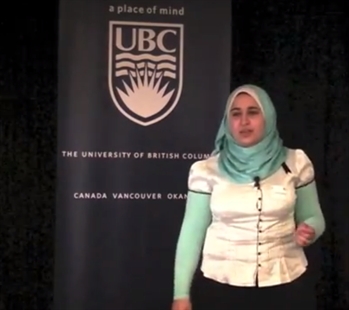Elevate your local knowledge
Sign up for the iNFOnews newsletter today!

VANCOUVER – A University of B.C. student has found a solution for cell phone overload during crises such as natural disasters, when many people get on their mobiles all at once.
Mai Hassan, who is doing her PhD, uses TV and radio channels to transmit cellular signals when systems are stretched to their limit.
Hassan, of the Department of Electrical and Computer Engineering, says the challenge was discovering a way to make sure cellular signals didn't interfere with the people using the channels in the first place.
Hassan has worked on changing the shape of the wireless signal so it could be transmitted, then changing the direction of the transmission away from the original channel.
Instead of using traditional antennas, she used so-called smart antennas on the mobile phones, which transmits signals that can be steered in one direction.
In a study published in a wireless communications journal, Hassan says she was able to transmit calls and texts to a receiver while avoiding interference from radio and TV signals.
Want to share your thoughts, add context, or connect with others in your community?
You must be logged in to post a comment.